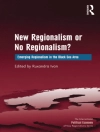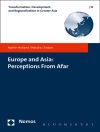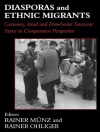The death of Nelson Mandela on 5 December 2013 was in a sense a wake-up call for South Africans, and a time to reflect on what has been achieved since ‘those magnificent days in late April 1994’ (as the editors of this volume put it) ‘when South Africans of all colours voted for the first time in a democratic election’. In a time of recall and reflection it is important to take account, not only of the dramatic events that grip the headlines, but also of other signposts that indicate the shape and characteristics of a society. The New South African Review looks, every year, at some of these signposts, and the essays in this fourth volume of the series again examine and analyse a broad spectrum of issues affecting the country. They tackle topics as diverse as the state of organised labour; food retailing; electricity generation; access to information; civil courage; the school system; and – looking outside the country to its place in the world – South Africa’s relationships with north-east Asia, with Israel and with its neighbours in the southern African region. Taken together, these essays give a multidimensional perspective on South Africa’s democracy as it turns twenty, and will be of interest to general readers while being particularly useful to students and researchers.
Table des matières
Introduction: South Africa’s fragile democracy: Twenty years on – Devan Pillay and Roger Southall
Introduction to Part One – Devan Pillay
Chapter 1: The South African labour market after eighteen years: It’s class struggle, stupid! – Nicolas Pons-Vignon and Miriam Di Paola
Chapter 2: The state of organised labour: Still living like there’s no tomorrow – Ian Macun
Chapter 3: Citizen Wal-Mart? South African food retailing and selling development – Bridget Kenny
Chapter 4: Transcending South Africa’s oil dependency – Jeremy Wakeford
Chapter 5: The politics of electricity generation in South Africa – Keith Gottschalk
Introduction to Part Two – Prishani Naidoo
Chapter 6: Platinum, poverty and princes in post-apartheid South Africa: New laws, old repertoires – Aninka Claassens and Boitumelo Matlala
Chapter 7: ama Diba moment: How civil courage confronted state and corporate collusion – John GI Clarke
Chapter 8: Secrecy and power in South Africa – Dale T Mc Kinley
Chapter 9: The contemporary relevance of Black Consciousness in South Africa -Xolela Mangcu
Chapter 10: Death and the modern black lesbian – Zethu Matebeni
Introduction to Part Three – Roger Southall
Chapter 11: Why does Zimbabwe’s school system out-perform South Africa’s? – Martin Prew
Chapter 12: Higher Education in 2013: At many crossroads – Ahmed Bawa
Chapter 13: Democracy without economic emancipation: Household relations and policy in South Africa – Sarah Mosoetsa
Chapter 14: Prisons, the law and overcrowding – Clare Ballard
Introduction to Part Four – Gilbert M Khadiagala
Chapter 15: South Africa in Africa: Groping for leadership and muddling through – Gilbert M Khadiagala
Chapter 16: South Africa and Israel: From alliance to estrangement – Ran Greenstein
Chapter 17: South Africa’s economic ties with north-east Asia – Scarlett Cornelissen
Chapter 18: Regional parastatals within South Africa’s system of accumulation – Justin van der Merwe
Chapter 19: The leadership challenge in Southern Africa – Mopeli L Moshoeshoe
A propos de l’auteur
Jeremy Wakeford is a Senior Lecturer Extraordinary in the School of Public Leadership at the University of Stellenbosch.












